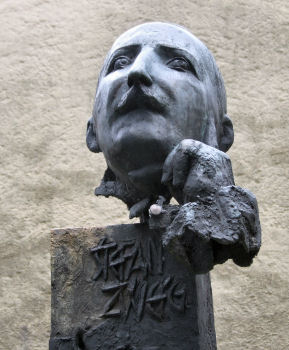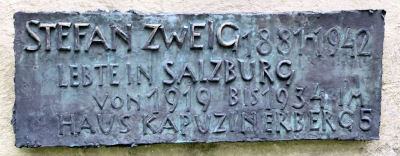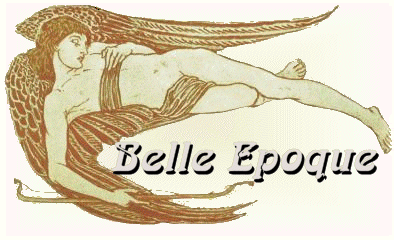The Belle Epoque in Europe
The European Belle Epoque
 Stefan Zweig (1881-1942)
Stefan Zweig (1881-1942)
"In its liberal idealism, the nineteenth century was honestly convinced that it was on the straight and unfailing path toward being the best of all worlds. Earlier eras, with their wars, famines, and revolts, were deprecated as times when mankind was still immature and unenlightened. But now it was merely a matter of decades until the last vestige of evil and violence would finally be conquered, and this faith in an uninterrupted and irresistible 'progress' truly had the force of a religion for that generation. One began to believe more in this 'progress' that in the Bible, and its gospel appeared ultimate because of the daily new wonders of science and technology.
In fact, at the end of this peaceful century, a general advance became more marked, more rapid, more varied. At night the dim street lights of former times were replaced by electric lights, the shops spread their tempting glow from the main streets out to the city limits. Thanks to the telephone one could talk at a distance from person to person. People moved about in horseless carriages with a new rapidity; they soared aloft, and the dream of Icarus was fulfilled. Comfort made its way from the houses of the fashionable to those of the middle class. It was no longer necessary to fetch water from the pump or the hallway, or to take the trouble to build a fire in the fireplace. Hygiene spread and filth disappeared. People became handsomer, stronger, healthier, as sports steeled their bodies. Fewer cripples and maimed and persons with goiters were seen on the streets, and all of these miracles were accomplished by science, the archangel of progress.
Progress was also made in social matters; year after year new rights were accorded to the individual, justice was administered more benignly and humanely, and even the problem of problems, the poverty of the great masses, no longer seemed insurmountable. The right to vote was being accorded to wider circles, and with it the possibility of legally protecting their interests. Sociologists and professors competed with one another to create healthier and happier living conditions for the proletariat. Small wonder then that this century sunned itself in its own accomplishments and looked upon each completed decade as the prelude to a better one.
There was as little belief in the possibility of such barbaric declines as wars between the peoples of Europe as there was in witches and ghosts. Our fathers were comfortably saturated with confidence in the unfailing and binding power of tolerance and conciliation. They honestly believed that the divergencies and the boundaries between nations and sects would gradually melt away into a common humanity and that peace and security, the highest of treasures, would be shared by all mankind."

Stefan Zweig in 1941 in: The World of Yesterday, University of Nebraska Press 1964

